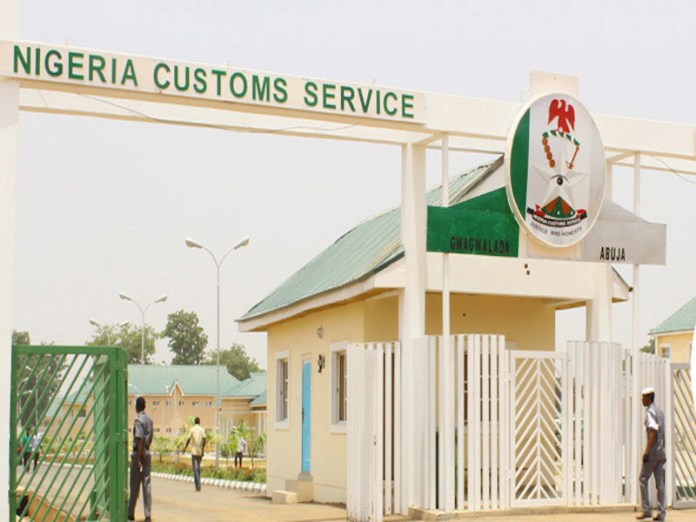- Customs Rakes in N14.3bn in Three Months
Despite the downturn in the economy, the Nigeria Customs Service (NCS), Murtala Mohammed Airport Command, Ikeja, Lagos, has announced revenue of N14.399 billion in the first quarter (Q1) of 2017, compared with N11.1 billion earned in the corresponding period of 2016. This represents an increase of N3.258 billion when compared to the Q1 of year 2016.
Controller of the command, Francis Allanah, who disclosed this in a statement, said the command collected a total of N55.5 billion from January to December 2016.
This figure, he added, surpassed the envisage revenue target with a whopping N15.5 billion, and also exceeded the total collection of 2015 by N12.8billion.
Allanah said he and officers in his command would continue to do their best to surpass targets set by customs high command and boost the revenue of the federal government.
According to him, “The year 2017 is just three months old, notwithstanding the harsh economic realities, by dogged determination, quality leader ship, and commitment by motivation of our officers and men, the MMA command is poised to do more going by revenue figures already collected for the first quarter 2017.
“Clearing agents and importers who work within the Airport can testify to our adherence to and insistence on professional conduct as stipulated by Customs guidelines/regulations. We have made remarkable strides in the areas of revenue generation, anti-smuggling, discipline, enforcement, trainings, officers’ welfare amongst others.”
He added that through in-house training and re-trainings, officers and men of the Nigeria Customs Service at MMA have become more professional and unbeatable.
Maximum revenue, he stressed, has therefore been collected on all dutiable items be they exports or imported cargoes.
“Only last year, two aircrafts imported by yet to be identified importers, were seized by the command under his watch. The aircrafts have been handed over to the Nigerians Air Force to strengthen it on the fight against insurgents especially in the North-East and South-South regions of the country. And a total of eight cartons of phantom drone are seized during the period under review. Huge sums of various currencies have also been seized from currency traffickers by the command and handed over to the Economic and Financial Crimes Commission (EFCC) for further investigation and necessary action.
Allanah added that the command does not tolerate any act of indiscipline, adding that, “By his avowed commitment to enforcing laid down rules by the Customs management board, the resultant rise in revenue profile is, without an iota of doubt, a result of his strictness and incorrigibility attitude to act of indiscipline.”

 Forex3 weeks ago
Forex3 weeks ago
 Naira3 weeks ago
Naira3 weeks ago
 Billionaire Watch3 weeks ago
Billionaire Watch3 weeks ago



 Naira3 weeks ago
Naira3 weeks ago






 Naira2 weeks ago
Naira2 weeks ago




 Naira2 weeks ago
Naira2 weeks ago






 Naira1 week ago
Naira1 week ago




 Naira4 weeks ago
Naira4 weeks ago
























